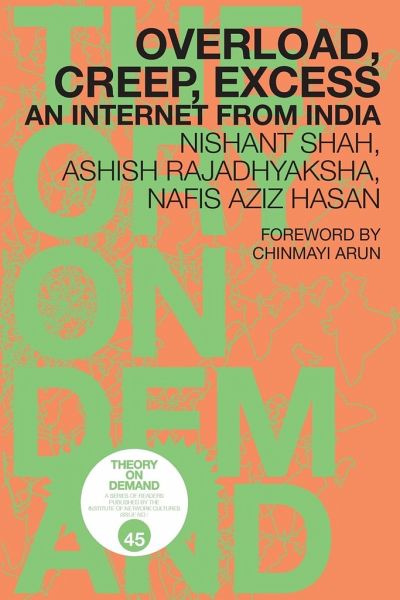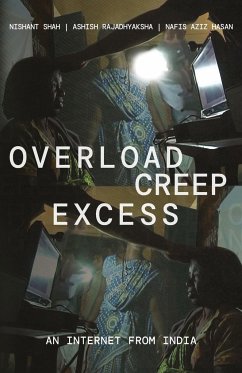
OVERLOAD, CREEP, EXCESS
An Internet from India
Versandkostenfrei!
Sofort lieferbar
17,99 €
inkl. MwSt.

PAYBACK Punkte
9 °P sammeln!
This book locates India's flourishing internet within a complex 24-year history that has seen an unprecedented re-organization of social and political life. Three essays provide independent perspectives on a common area of inquiry, an era that witnessed a fundamental mutation of the State, its mechanisms of planning and governance, the public domain and the everyday, all mediated by digital technology, all impacting its internet. Bringing the essays together is a common timeline, which begins in the late 1970s, includes such landmarks as the Information Technology Act, the much-discussed Aadha...
This book locates India's flourishing internet within a complex 24-year history that has seen an unprecedented re-organization of social and political life. Three essays provide independent perspectives on a common area of inquiry, an era that witnessed a fundamental mutation of the State, its mechanisms of planning and governance, the public domain and the everyday, all mediated by digital technology, all impacting its internet. Bringing the essays together is a common timeline, which begins in the late 1970s, includes such landmarks as the Information Technology Act, the much-discussed Aadhaar biometric identification programme, the chequered career of social media, and the widespread use of internet shutdowns.














